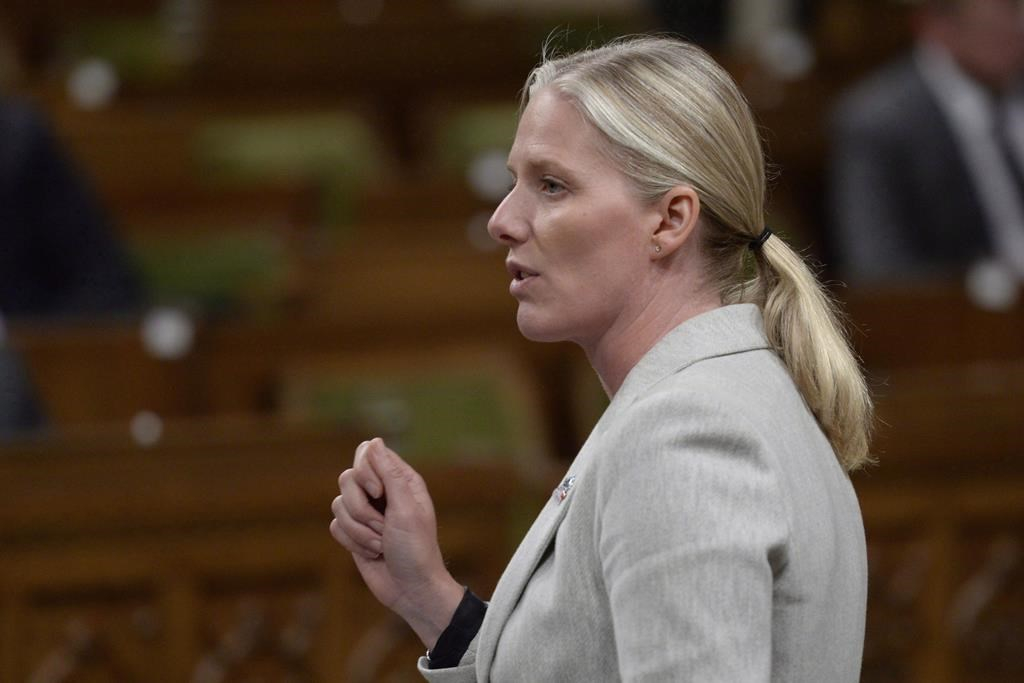Support strong Canadian climate journalism for 2025
Environment Minister Catherine McKenna is facing legal action from several environmental groups who accuse the government of dragging its heels on investigating Volkswagen for duping Canadians with diesel engines.
Volkswagen pleaded guilty in the U.S. in March after software was found in certain diesel vehicles that made it appear as though the cars were producing fewer emissions than they really were.
In fact, under normal conditions, the cars emitted 35 times Canada's legal limit on nitrogen oxides, which have adverse effects on human health and contribute to climate change.
About 105,000 of the rigged vehicles were sold in Canada and Volkswagen has a court-certified settlement program underway to buy back the cars and compensate Canadians who owned or leased them.
A statement from McKenna says her department is investigating and will act if necessary, but that investigation is nearly two years old and two groups, Environmental Defence and the Canadian Association of Physicians for the Environment, are tired of waiting.
Tim Gray, executive director of Environmental Defence, said his organization heard informally from the government that almost two years after the department began investigating there wasn't a lot of confidence Canada could do anything about the Volkswagen violations.
He said if the government doesn't act when there is a "violation of environmental law at this scale" and an admission of guilt in the United States regarding the same cars, it sends a horrible message.
"It basically puts a mark on Canada as a place to get away with dumping your crap into the environment and nothing will be done about it," said Gray.
So in June the two agencies joined forces to apply for a ministerial investigation to be launched under the Canadian Environmental Protection Act.
Provisions of that act allow a member of the public to seek a minister's probe into allegations of violations of the act and to be updated on that investigation every 90 days.
The application asked for investigations into four allegations including that Volkswagen imported cars that violated Canadian emissions requirements, applied the National Emissions Mark on diesel cars which didn't meet the standards and then sold those cars, provided false and misleading information and earlier this year resumed sales of the 2015 models without fixing the emissions problem.
Environment and Climate Change Canada's Environmental Enforcement Directorate responded by saying because the department was already doing an in-house investigation on the first three items, there would be no ministerial probe.
The department said it would launch a new investigation into the last claim, which looks at what Volkswagen did to fix its 2015 diesel-engine cars before starting to sell them again in Canada.
This week the two organizations filed suit to force McKenna to comply with their application on all four issues.
Amir Attaran, a lawyer with the Ecojustice environmental law clinic at the University of Ottawa who represents the individuals who filed the suit, said without launching investigations under Section 17 of the act, the government doesn't have to update anyone on what it is doing to investigate.
He said it has been nearly two years since the issue was first made public and Environment Canada launched its investigation. It has been almost six months since the company pleaded guilty in the U.S. and agreed that it wouldn't deny wrongdoing in other countries as part of that plea. With all this, it doesn't make sense that Canada hasn't been able to complete its investigation and file charges here.
Ontario NDP MP Brian Masse said Canada doesn't take this kind of situation seriously enough and urged McKenna to act as soon as possible.
Environment Canada spokesman Mark Johnson said in an email it is not abnormal for an investigation of this complexity to take two or three years and that work has to be completed to put together the strongest possible case before deciding whether to recommend charges be laid.



Comments